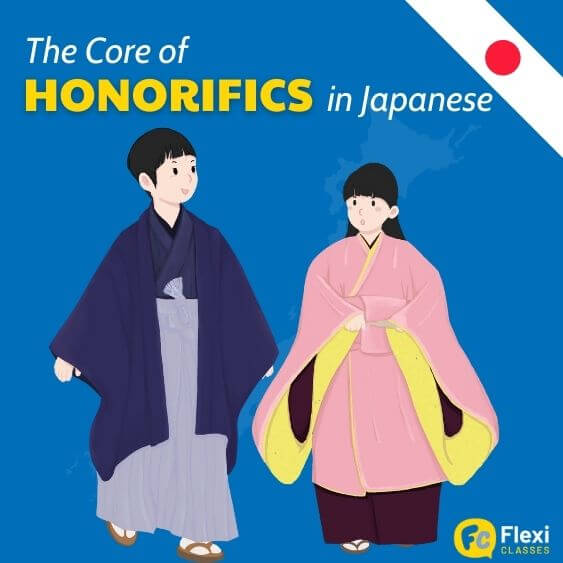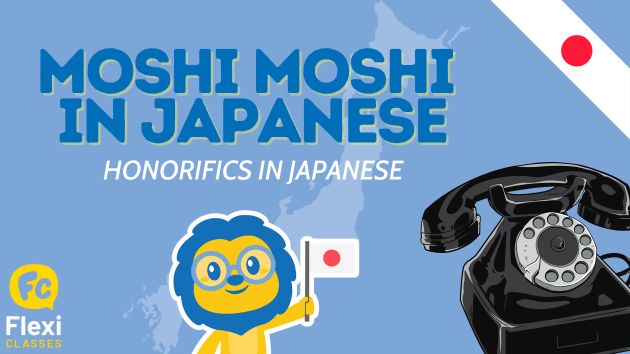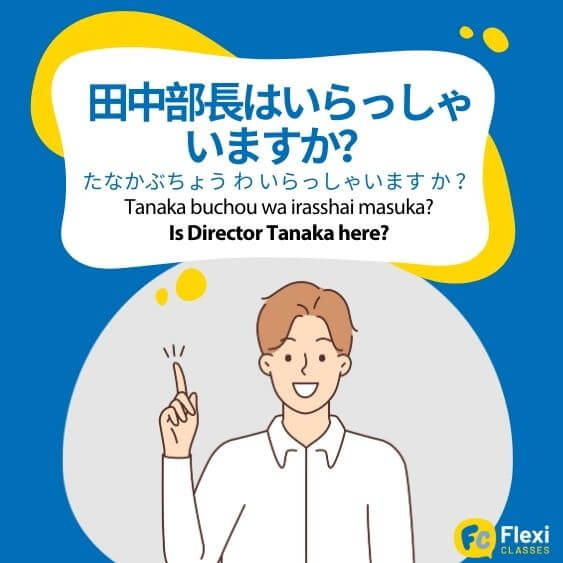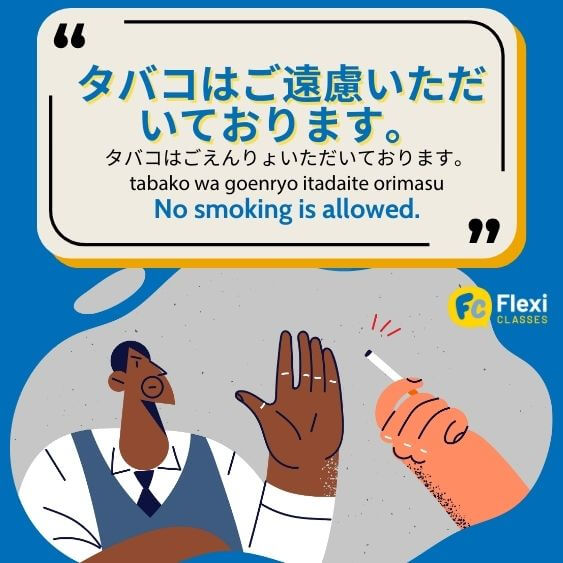Honorifics in Japanese: What They Are & How to Use Them
Understanding Basics of Japanese Honorifics

Honorifics play a crucial role in the Japanese language.
In Japan, social hierarchy based on age and status is deeply respected, and honorifics are essential for reflecting these relationships in daily conversations.
Closely tied to Japanese culture and societal structure, honorifics are a fundamental aspect of the language—yet they can also be one of the most challenging elements for learners to master.
In this article, we’ll provide a brief introduction to Japanese honorifics and their usage.
Japanese Honorifics || Things to Keep in Mind Before Honorifics
Japanese Honorifics || Three Categories of Honorifics
Japanese Honorifics || Humble Expressions
Japanese Honorifics || Polite Expressions
Japanese Honorifics || FAQs
Japanese Honorifics || Things to Keep in Mind Before Honorifics
In addition to using honorifics, it’s important to note that addressing someone by their first name is uncommon in Japanese.
In formal or professional settings, especially when honorific language is required, people typically refer to others by their title or occupation rather than their first name. For example, a teacher is called “Sensei” and a department head is referred to as “Buchou” instead of using their given name.
When using a name, the family name is preferred, often combined with a title—such as “Tanaka Sensei” or “Suzuki Buchou.” Calling someone by their first name is reserved for close relationships, such as family members or close friends, which may feel unusual to English speakers but is a sign of respect in Japanese culture.
For example:
In a store, one may address a shopkeeper as “Ten-in-san” (店員さん てんいんさん , a shopkeeper).
Cab drivers are also addressed as “Untenshu-san” (運転手さん うんてんしゅさん , a driver).
It is not particularly rude in Japanese to address a person by his or her occupation in this way.
One reason for this custom is that in ancient times, being known by name was inextricably linked to being cursed. Therefore, it was common for people to use other names in their daily lives instead of their real names, and this practice may still remain today.

Moshi Moshi Meaning // Origin, How to Use It and Why Honorifics Matter
Pick Up the Phone, Japanese is Calling 🤳 Moshi Moshi Meaning If you’ve ever watched a Japanese movie, anime, or perhaps had a Japanese friend, you’ve likely encountered the term “moshi moshi”. For those unfamiliar with Japanese culture or language,…
Japanese Honorifics || Three Categories of Honorifics
In Japanese, honorifics are classified into three categories:
| 尊敬語 そんけいご sonkeigo Honorific expressions | 謙譲語 けんじょうご kenjougo Humble expressions | 丁寧語 ていねいご teineigo Polite expressions |
Honorific expressions(尊敬語 そんけいご ) are used for the actions of someone who is in a higher position than you, such as a superior, boss or customer.
This is an expression of respect for the other person and an attempt to express by words that the other person’s status is higher than yours.
The honorific expressions for some basic verbs are as follows:
| BASIC FORM | HONORIFIC EXPRESSION | ENGLISH MEANING |
|
する
suru |
なさる
nasaru | do |
|
たべる
taberu |
めしあがる
meshiagaru | eat |
|
いう
iu |
おっしゃる
ossharu | say |
|
いく、いる
iku, iru |
いらっしゃる
irassharu | go, be |
|
きる
kiru |
おめしになる
omeshini naru | wear |
Honorific language is not used for oneself or for people in the group to which one belongs. For example, when talking to someone outside the company, do not use honorifics to describe someone within your own company, even if the subject of the verb is your boss:
A: 田中部長はいらっしゃいますか?
Is Director Tanaka here?B: 田中はただいま外出しております
Tanaka is currently out of the office.
Here, A does not belong to the company to which director Tanaka belongs. So he uses an honorific expression for Tanaka.
On the other hand, even though Tanaka is the boss of B, since B is talking to a person outside the company, B doesn’t use an honorific expression for director Tanaka.
Japanese Honorifics || Humble Expressions
Humble expressions(謙譲語 けんじょうご ) show respect by making oneself humble.
While honorific expressions show respect by elevating the status of the other person, humble expressions can be used in the absence of the other person, as they humble oneself. Therefore, it is also used as a honorific in company press releases, public relations, and other declarations to the public.
The following are examples of humble expressions:
| BASIC FORM | HUMBLE EXPRESSION | ENGLISH MEANING |
|
いく
iku | 参る
まいる
mairu | come |
|
たずねる
tazuneru |
うかがう
ukagau | ask, visit |
|
たべる
・s
のむ
taberu・ nomu |
いただく
itadaku | eat, drink |
|
する
suru |
いたす
itasu | do |
| 見る
みる
miru | 拝見する
はいけんする
haiken suru | look |
|
もらう
morau |
いただく
itadaku | receive |
Humble expressions are often used in postings at stores and train stations.
店内は禁煙とさせていただいております。
てんないはきんえんとさせていただいております。ten nai wa kinen to sasete itadaite orimasu .
Smoking is not permitted in the restaurant.

タバコはご遠慮いただいております。
タバコはごえんりょいただいております。tabako wa goenryo itadaite orimasu.
No smoking is allowed.
おひとりさまひとつまでとさせていただいております。
ohitorisama hitotsu made to sasete itadaite orimasu.
Only one per person may be purchased.

させていただく sasete itadaku is one of the most frequently used expression in Japanese to show your humbleness. This word can be attached to almost any verb or noun, so it can be used to show modesty, even when the exact expression is not known.
私が書かせていただきます。
わたしがかかせていただきます。watashi ga kakasete itadakimasu.
I will write.
帰宅させていただきます。
きたくさせていただきます。kitaku sasete itadakimasu.
I’m going home.
勉強させていただきます。
べんきょうさせていただきます。benkyou sasete itadakimasu.
I will study it.
させていただく sasette itada is a controversial expression, because it sometimes sounds too humble. Some people believe that they do not need to be so humble about their actions.
させる saseru means to make someone do something. させていただく sasete itadaku literally means something makes me do that, so this expression is widely used because it matches the tendency of the Japanese to avoid personal decision or responsibility.
In Japanese, it is preferred to express that one does so out of necessity due to circumstances rather than out of personal initiative. This irritates some people, because it is too Japanese.
Anyway, there is no doubt that this is a very Japanese expression of humility. Once you master these expressions, you will be at the native level.

In the Country of Harmony: How to Say Yes in Japanese
Understanding the Variations of Yes in Japanese || Need-to-Know Vocab, Phrases and Culture Japan is a country that values harmony, and there is a great psychological cost to saying no or rejecting something. Of course, whilst saying yes in Japanese…
Japanese Honorifics || Polite Expressions
Finally, there are polite expressions(丁寧語 ていねいご ).
These are simple. Polite expressions are used to make speech more polite and formal, regardless of the speaker’s and listener’s social status. In many cases, words desuです or masuます are added at the end of a word to increase politeness.
| BASIC FORM | POLITE EXPRESSION | ENGLISH MEANING |
| 彼はジョンだ。 かれはジョンだ。 kare wa jon da. | 彼はジョンです。 かれはジョンです。 kare wa jon desu. | He is John. |
| 私は食べる。 わたしはたべる。 watashi wa taberu. | 私は食べます。 わたしはたべます。 watashi wa tabemasu. | I eat. |

In this way, a sentence written in a polite tone with desu or masu at the end of words is called “desu-masu-cho”(ですます調 ですますちょう ).
If you are not so familiar with Japanese expressions, you can express at least a minimum of politeness by remembering to add desu or masu at the end of words.
That is all for this article. Honorifics are a difficult subject even for Japanese.
Even if you don’t understand it, you will get a feel for it as you learn and gain experience.
Have you managed to get your head around honorifics? Share your experiences here with us!
Japanese Honorifics || FAQs
Why are Japanese honorifics important?
Honorifics are a way of expressing the social order in Japan through language. Without it, it is impossible to converse with others.
What are the different types of honorifics in Japanese?
There are honorific, humble and polite expressions.
What are honorific expressions in Japanese?
Honorific expressions are called 尊敬語 そんけいご sonkeigo. These express respect for the other person by elevating his or her position.
What are humble expressions in Japanese?
Humble expressions are called 謙譲語 けんじょうご kenjougo. These express respect for the other person by humbling oneself.
What are polite expressions in Japanese?
Polite expressions are called 丁寧語 ていねいご teineigo. These are used to make speech more polite and formal, regardless of the speaker’s and listener’s social status.
When should I use someone’s first name in Japanese?
Using a first name is generally reserved for close relationships, such as family and close friends. In professional or formal settings, it’s more appropriate to use the person’s family name with an honorific, like “Tanaka-san” or “Suzuki Sensei.”
Want More From LTL?
WANT TO LEARN JAPANESE? Check out our online Japanese courses here.
We offer a 7-day free trial to all new students where you can study 24/7.
What about studying Japanese in Japan instead? We’ve got your back. Our Japanese courses in Tokyo can either be taken in small groups of no more than 5 students or individually for a more tailored experience.
We even offer incredible homestay experiences in Tokyo as well.
Come and be a part of this amazing community.









